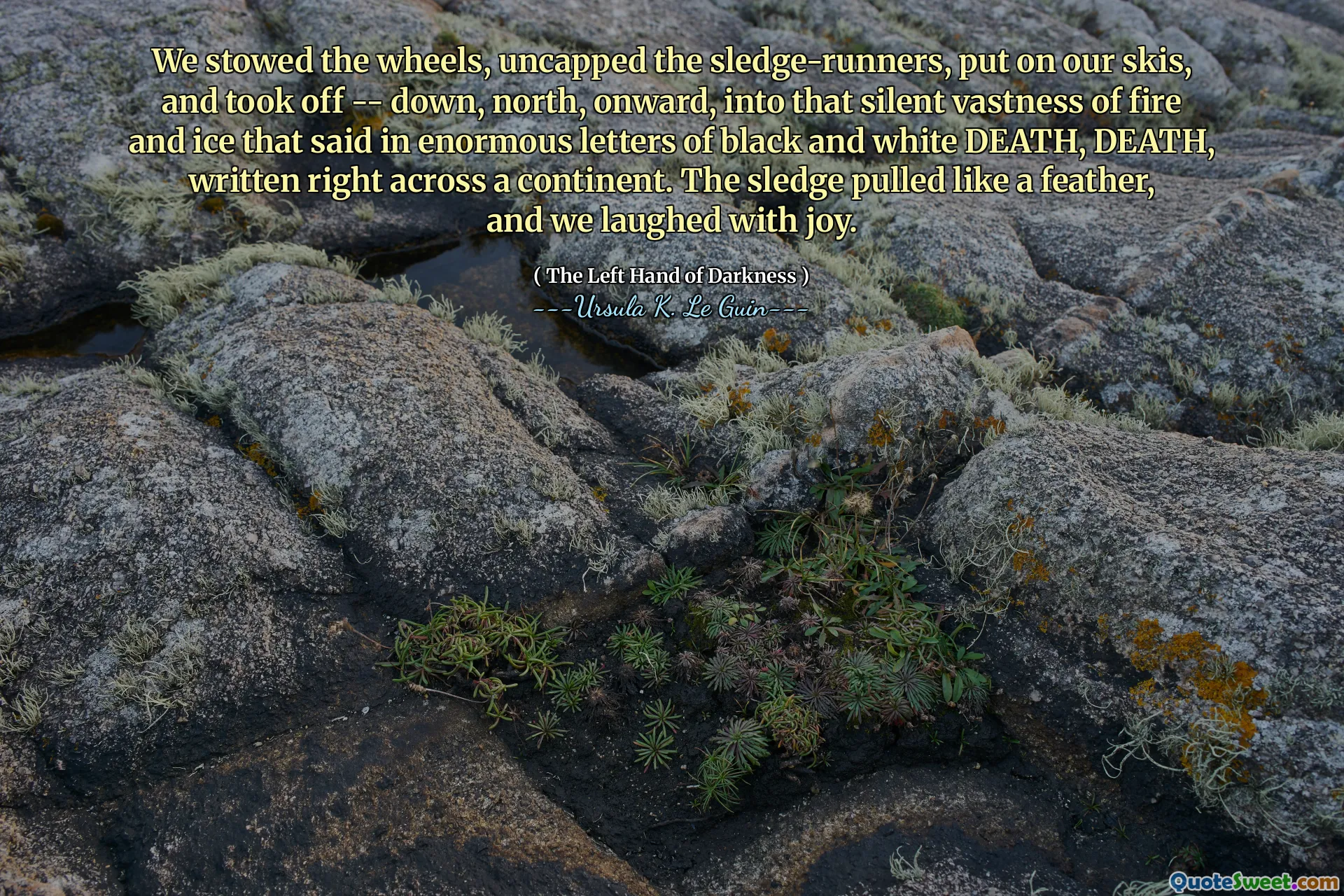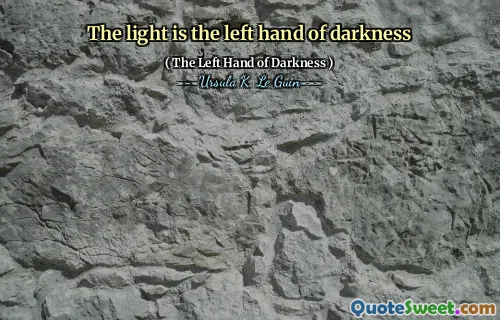
We stowed the wheels, uncapped the sledge-runners, put on our skis, and took off -- down, north, onward, into that silent vastness of fire and ice that said in enormous letters of black and white DEATH, DEATH, written right across a continent. The sledge pulled like a feather, and we laughed with joy.
This vivid excerpt from Ursula K. Le Guin's 'The Left Hand of Darkness' encapsulates the thrill of exploration amidst the formidable and seemingly hostile environment of the icy wilderness. The imagery of setting out into a silent expanse of fire and ice evokes both danger and awe — a world that communicates its lethal nature loudly through its stark contrasts, yet simultaneously beckons explorers with a sense of purpose and adventure. The act of stowing the wheels and preparing the sledge-runners signifies readiness and respect for the treacherous terrain, while the mention of putting on skis symbolizes agility and adaptation. The phrase 'took off' hints at the beginning of a journey into the unknown, a pursuit driven by curiosity and resilience. Despite the omnipresent threat of death inscribed across the continent, the explorers' laughter reveals a human capacity to find joy and camaraderie even in perilous circumstances. This juxtaposition highlights a universal truth: that beneath the shadow of mortality lurks an unyielding spirit of bravery and wonder. The imagery, with the sledge pulling 'like a feather,' conveys the deceptive ease of movement through such hazardous terrain when driven by resolve. Ultimately, the quote encapsulates the paradox of exploration — risking life to experience the profound beauty and vastness of our world, and perhaps of the universe, with the acknowledgment that mortality is woven intimately into the fabric of adventure. It is an ode to the indomitable human spirit that delights in discovery despite understanding the inevitable dangers that lie on the horizon.







